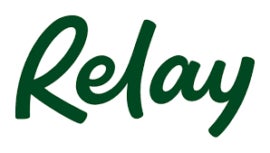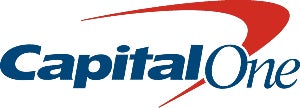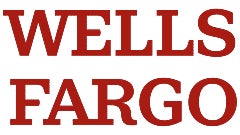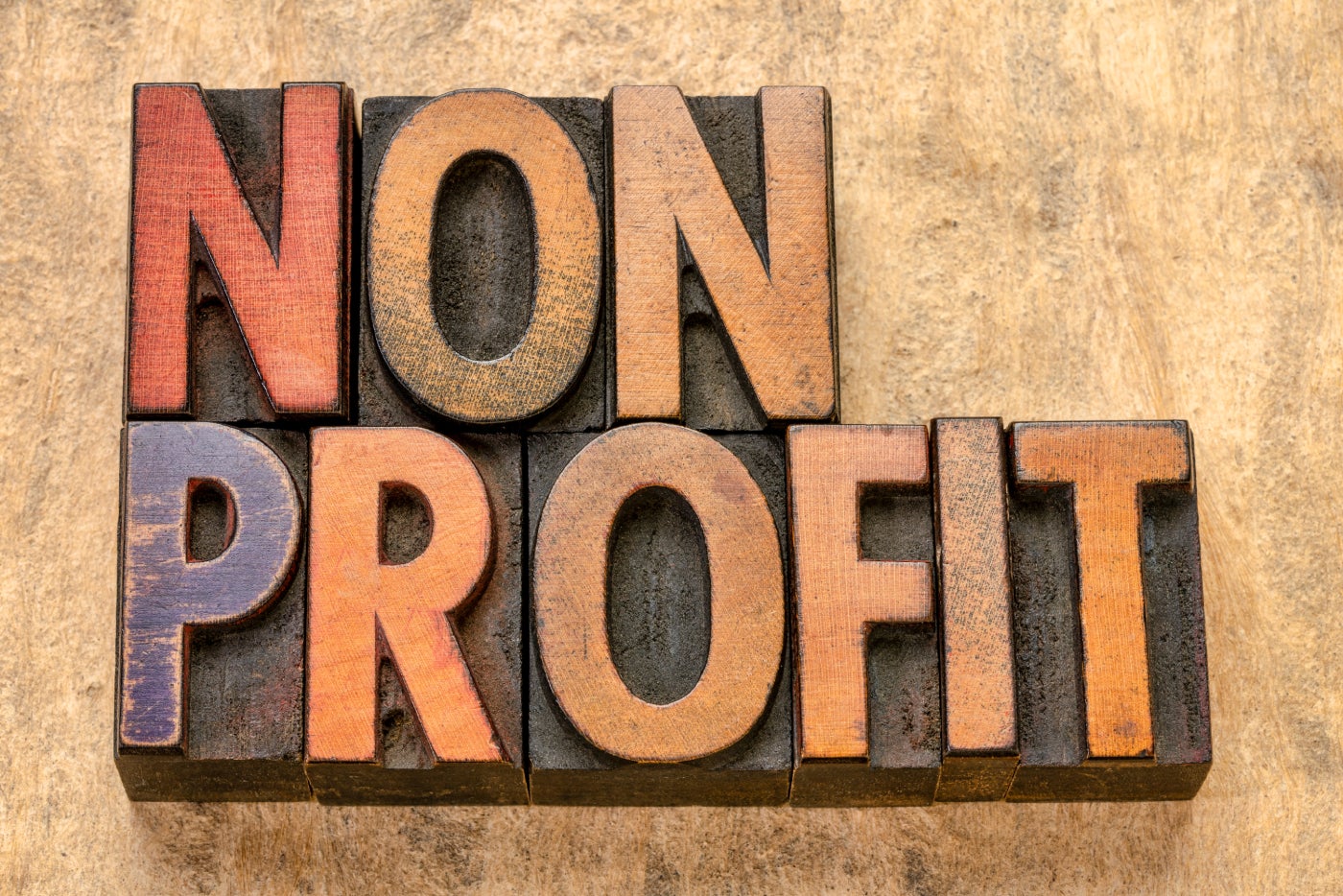When looking for a bank for your nonprofit, prioritize one that helps you save by offering accounts with no monthly service fees or easy-to-waive fee conditions. Some banks provide specialized accounts and services for nonprofits, which are compatible with a charitable organization’s needs. Others won’t have a dedicated nonprofit account but will provide a basic-tier product with a high transaction limit, waived monthly fees and efficient business tools.
With advanced banking technology, financial technology companies have also made it easy to open an account online. These fintech companies will waive account balance requirements, monthly service fees and initial opening amounts. Additionally, they offer unlimited transactions, which is cost-effective for nonprofit organizations.
We evaluated the nine best banks for nonprofits.
- Best overall: Truist
- Best for nonprofits with variable transactions seeking flexibility: U.S. Bank
- Best for high interest and line of credit with low rates: Bluevine
- Best for high cash deposit limit and rewards: Bank of America
- Best for multi-member nonprofit organizations: Relay
- Best for fee-free and unlimited digital transactions: Capital One
- Best for an integrated donor-advised fund platform: PNC Bank
- Best for philanthropic services and branch accessibility: Wells Fargo
- Best for quick payment acceptance and low-cost international payments: Novo
SPONSORED Software Spotlight: BluevineEarn up to 4.25% APY with Bluevine Business Checking.
|
*Truist, U.S. Bank, Bank of America, Capital One, PNC Bank and Wells Fargo are all members of the Federal Deposit Insurance Corp. (FDIC).
**Fintech platforms mentioned above are backed by and FDIC-insured through supporting bank partnerships: Bluevine with Coastal Community Bank, Relay with Evolve Bank & Trust and Thread Bank and Novo with Middlesex Federal Savings.
Top banks for nonprofits comparison
The table below shows the key features we considered for the best banks for nonprofits.
| Our rating (out of 5) | Charges monthly fees | Offers APY | Issues free monthly transactions | Allows free cash deposit | |
|---|---|---|---|---|---|
| Truist Community Checking | 4.38 | No | No | Yes | Yes, unlimited |
| U.S. Bank Nonprofit Checking | 4.35 | No | Yes | Yes | Yes |
| Bluevine Standard | 4.32 | No | Yes | Yes, unlimited | No |
| Bank of America Business Advantage Fundamentals Banking | 4.29 | Yes | No | Yes | Yes |
| Relay Standard | 4.16 | No | No | Yes, unlimited | Yes |
| Capital One Basic Checking | 4.15 | Yes | No | Yes, unlimited | Yes |
| PNC Bank Non-Profit Checking | 4.08 | Yes | No | Yes | Yes |
| Wells Fargo Initiate Business Checking | 4.07 | Yes | No | Yes | Yes |
| Novo Business Checking | 3.85 | No | No | Yes, unlimited | No |
Truist: Best overall
Our rating: 4.38 out of 5

Truist is our best bank for nonprofits with its offer of unlimited and fee-free cash deposits and no monthly fee under Truist Community Checking, its specialty nonprofit account. You also get a high fee-free transaction limit of 225, free online bill pay and additional fraud security through its Fraud InspectorTM service. The bank has over 2,500 physical locations in Washington, D.C. and 15 states: Alabama, Florida, Georgia, Indiana, Kentucky, Maryland, New Jersey, North Carolina, Ohio, Pennsylvania, South Carolina, Tennessee, Texas, Virginia and West Virginia.
Why we chose Truist
With fee-free cash deposits, high transaction limits and no monthly service fee, Truist Community Checking is an excellent account for nonprofits and small community or civic organizations. Compared to other banks’ basic tier accounts, this product has the highest number of free transactions at 225 items. Past this limit, the transaction fee of 35 cents is also lower than other financial institutions.
Monthly fee
- Truist Community Checking: $0
Features
- Customized debit card with optional cash back and earnings credit.
- $25 discount for initial check order.
- Free online bill pay and easy digital account management.
- QuickBooks, Quicken and Zelle integration.
- Dynamic Business Checking tiered rewards include discounted loan rates.
- Specialty business checking products include trusts, commercial accounts and public fund accounts.
- Online financial wellness program for employees.
- Customer support from Mondays to Saturdays; 24/7 automated assistance.
Pros and cons
| Pros | Cons |
|---|---|
|
|
U.S. Bank: Best for nonprofits with variable transactions seeking flexibility
Our rating: 4.35 out of 5

Similar to Truist, U.S. Bank offers a specialty nonprofit product, Nonprofit Checking, and this account suits organizations with unique transaction schedules. It does not charge a monthly maintenance fee. You get an annual transaction limit of 1,800 and a cash deposit allowance of $30,000 per year. The bank allows nonprofits to open checking accounts and credit cards without personal guarantors. In addition, it provides donor funding tools and a quick payment service (Everyday Funding) at no additional fee.
U.S. Bank has branches in Arizona, Arkansas, California, Colorado, Idaho, Illinois, Indiana, Iowa, Kansas, Kentucky, Minnesota, Missouri, Montana, Nebraska, Nevada, New Mexico, North Carolina, North Dakota, Ohio, Oregon, South Dakota, Tennessee, Utah, Washington, Wisconsin and Wyoming.
Why we chose U.S. Bank
Instead of setting a monthly limit of fee-free transactions and cash deposits, U.S. Bank’s Nonprofit Checking provides an annual limit, which benefits nonprofits with unpredictable transaction activities. This setup is advantageous after a large fundraising drive since you won’t incur excess fees when transacting a large amount as long as you keep within the annual limits. We consider U.S. Bank’s annual limit of transaction and cash deposits as the best for nonprofits that value flexibility.
Monthly fee
- U.S. Bank Nonprofit Business Checking: $0
Features
- No personal guarantor is required for nonprofit checking accounts and credit cards.
- Check fraud protection.
- Mobile check deposit and bill pay.
- Overdraft protection.
- Free and fast payment solution, Everyday Funding.
- Donor management tools for automated donation collection.
- Business financing tailored for nonprofits.
- Free and unlimited employee cards.
Pros and cons
| Pros | Cons |
|---|---|
|
|
Bluevine: Best for high interest and line of credit with low rates
Our rating: 4.32 out of 5

Bluevine, a fintech company, is ideal for nonprofits that want to open a fee-free account that generates high interest. It streamlines the account opening process and allows charitable organizations to apply for a checking account online. It offers three business checking options with increasing APY rates and waivable monthly fees for the higher-tier products. Bluevine funds are FDIC-insured up to $3 million from its sweep network bank partnership. For financing, your charitable organization can access an excellent line of credit with low rates.
Why we chose Bluevine
Although it does not offer a specialty nonprofit account, the Bluevine Standard checking is a great option that provides a high interest rate. Nonprofits can earn a 2.0% APY as long as they receive $2,500 in monthly customer payments or spend at least $500 each month using the Bluevine debit card. Largely fee-free, this provider does not have a minimum balance requirement, monthly fee or opening deposit.
Monthly fee
- Bluevine Standard: $0
- Bluevine Plus: $30; waivable by having
- an ADB of $20,000 across your Bluevine checking account, including subaccounts AND
- a spend of $2,000 monthly using your Bluevine debit card or credit card
- Bluevine Premier: $95; waivable by meeting
- an ADB of $100,000 across your Bluevine checking account, including subaccounts AND
- a spend of $5,000 monthly using your Bluevine debit card or credit card
Features
- Two free checkbooks yearly.
- Robust business and accounting software integrations.
- Five sub-accounts.
- FDIC insurance of up to $3 million.
- Lines of credit up to $250,000 at low rates.
- Business credit card with unlimited cashback and zero annual fee.
- Free domestic incoming wire transfers.
- Shared account access.
Pros and cons
| Pros | Cons |
|---|---|
|
|
Bank of America: Best for high cash deposit limit and rewards
Our rating: 4.29 out of 5

Bank of America is an established bank with an accessible branch presence in Washington, D.C. and 38 states. Currently, it has no locations in Alabama, Alaska, Hawaii, Louisiana, Mississippi, Montana, Nebraska, North Dakota, Vermont, West Virginia, Wisconsin or Wyoming. Nonprofits can earn a welcome bonus of up to $200 when opening a new business checking account and meeting qualifying activity requirements. It also has an excellent tiered rewards program and a starter checking account with one of the highest fee-free cash deposit limits in the banking industry.
Why we chose Bank of America
We highly recommend the bank for nonprofits that need to deposit cash regularly. The entry-level account, Business Advantage Fundamentals Banking, offers free cash deposits of up to $7,500 monthly. Nonprofits that require higher limits can open the higher-tier Business Advantage Relationship Banking. To access discounts and additional interest rate boosts, you can sign up for the free Preferred Rewards for Business program.
Monthly fee
- Business Advantage Fundamentals Banking: $16; waivable by having
- a $5,000 combined average monthly balance
- at least $250 in new net qualified debit card purchases
- a Preferred Rewards for Business membership
- Business Advantage Relationship Banking: $29.95; waivable by having
- a $15,000 combined average monthly balance
- a Preferred Rewards for Business membership
Features
- Cash Flow Monitor, a cash management tool to track business performance.
- Integration with QuickBooks, ADP and Zelle.
- Employee debit cards.
- Bill pay.
- Waived monthly fees for the second Business Advantage Relationship Banking account.
- Free access to business credit score information.
- Small business lending includes secured and unsecured lines of credit, SBA loans, commercial real estate loans and healthcare practice loans.
- Individual retirement accounts through Merrill Edge.
Pros and cons
| Pros | Cons |
|---|---|
|
|
Relay: Best for multi-member nonprofit organizations
Our rating: 4.16 out of 5

Relay, a fintech, offers its Relay Standard checking product with no monthly fees, balance requirements and opening deposit. Each nonprofit business can open two savings accounts with a tiered APY of 1% to 3%, depending on balances. Cash deposits are free at Allpoint+ ATMs, and no ATM withdrawal fees are collected. However, you may still get charged for third-party operator fees.
Why we chose Relay
For nonprofit organizations with many team members, Relay allows up to 20 free checking accounts and issues 50 free debit cards, which can help track spending and control expenses. It can help your nonprofit operation run more smoothly through its different account permission levels. Teams can delegate tasks, such as approving and paying bills, performing fund transfers and creating check payments.
Monthly fee
- Relay Standard: $0
- Relay Pro: $30; not waivable
Features
- Shared account access with team members.
- Savings accounts with 1% to 3% APY.
- No ACH and overdraft fees.
- FDIC insurance of up to $3 million.
- Integration with QuickBooks Online, Xero, PayPal, Stripe and Square.
- $5 or $10 wire fees for Relay Standard.
- Relay Pro offers free wire transfers, 50 same-day ACH and auto bill import.
- Email and phone support.
Pros and cons
| Pros | Cons |
|---|---|
|
|
Capital One: Best for fee-free and unlimited digital transactions
Our rating: 4.15 out of 5

Capital One is an established traditional bank offering two business checking options, Basic Checking and Enhanced Checking, with unlimited and fee-free digital transactions. It offers a full suite of business banking products and services and has around 750 branches in Louisiana, Maryland, New Jersey, New York, Texas, Virginia and Washington, D.C.
Why we chose Capital One
We included Capital One in our list of the best banks for nonprofit organizations since you can perform free and unlimited digital transactions, including mobile deposits, ACH transfers and online bill payments. With a business checking account, no opening deposit is required. You also get a monthly cash deposit allowance of $5,000 under its basic tier. Nonprofits needing unlimited fee-free cash deposits can open a higher-tier account. Additionally, you can use over 70,000 Capital One, Allpoint and MoneyPass ATMs for free.
Monthly fee
- Basic Checking: $15; waivable for nonprofit organizations (conditions undisclosed)
Features
- Free overdraft protection.
- Free incoming domestic wires for a higher-tier checking account.
- Wide range of business credit cards.
- QuickBooks, Xero and Stripe integrations.
- Business savings, certificates of deposit, lending and escrow accounts.
- Merchant services and fraud prevention services.
- Waived monthly fees for additional checking accounts.
- Remote deposit capture.
Pros and cons
| Pros | Cons |
|---|---|
|
|
PNC Bank: Best for an integrated donor-advised fund platform
Our rating: 4.08 out of 5

PNC Bank is among the top 10 banks in the U.S. in terms of assets. Its wide range of banking products includes a nonprofit checking account. The opening deposit is $100, with a waivable monthly fee of $5. You get 150 fee-free transactions, which include deposits, deposited items, paid items, and ACH credits and debits. A cash deposit allowance of $5,000 is also provided each month.
It has over 2,500 branches in Washington, D.C. and 28 states: Alabama, Arizona, California, Colorado, Delaware, Florida, Georgia, Illinois, Indiana, Kansas, Kentucky, Maryland, Massachusetts, Michigan, Minnesota, Missouri, New Jersey, New Mexico, New York, North Carolina, Ohio, Pennsylvania, South Carolina, Tennessee, Texas, Virginia, West Virginia and Wisconsin.
Why we chose PNC Bank
With its own digital platform, PNC Bank is focused on providing nonprofits with transparency through an integrated and secure online portal where donors can submit their transactions and check reports. The bank offers philanthropic services through educational resources, specifically webinars and market events. Additionally, a dedicated planned giving team is ready to assist in managing the nonprofits’ investment and administrative needs. Tailored nonprofit finance solutions are also available.
Monthly fee
- Non-Profit Checking: $5, waivable by meeting an average monthly collected balance of $500. The monthly fee is waived for the first three months for new accounts.
Features
- Cash Flow Insight tools.
- Remote deposit capture.
- Overdraft protection.
- QuickBooks, Xero, Oracle NetSuite and Sage Intacct integration.
- Clover solutions via PNC merchant services.
- Ongoing education focused on donor engagement.
- Investment management and operational support for nonprofits.
- Daily customer service support.
Pros and cons
| Pros | Cons |
|---|---|
|
|
Wells Fargo: Best for philanthropic services and branch accessibility
Our rating: 4.07 out of 5

Wells Fargo is a full-service bank with three regular business checking account options with waivable fees. The bank stands out by offering robust philanthropic services, even if it does not have a specialty account for nonprofits. You can open its basic account, Initiate Business Checking, which requires an initial deposit of $25. You get a monthly transaction allowance of 100 and fee-free cash deposits up to $5,000. The monthly fee of $10 is waivable.
The bank has a huge branch presence in Washington, D.C. and 36 states. It has no branches in Hawaii, Indiana, Kentucky, Louisiana, Maine, Massachusetts, Michigan, Missouri, New Hampshire, Ohio, Oklahoma, Rhode Island, Vermont and West Virginia.
Why we chose Wells Fargo
Nonprofits can rely on Wells Fargo to support their charitable goals. It offers philanthropic services, which include creating lifetime giving programs and managing the daily transactions of large-scale foundations or nonprofit organizations. Bank specialists are available to assist in your mission by managing public charity endowments and planned giving programs. In addition, the bank offers investment solutions, custom reports, administrative support for programs, consultations and guidance on fundraising and planned giving.
Monthly fee
- Initiate Business Checking: $10; waivable by meeting a daily balance of $500 or an average ledger balance of $1,000.
- Navigate Business Checking: $25; waivable by meeting a daily balance of $10,000 or average combined business deposit balances of $15,000.
- Optimize Business Checking: $75 can be reduced or offset by an earning allowance.
Features
- Free access to more than 12,000 ATMs nationwide.
- Administration and development of charitable trusts and gift annuity programs.
- Provides investment strategies for endowments.
- Integration with QuickBooks, Xero, RUN by ADP, Clover, Authorize.net and Zelle.
- Customer support is available daily.
- A consolidated monthly fee for 5 accounts under the highest-tier account, plus free incoming wires, stop payments and more.
- Merchant services and ecommerce solutions.
- SBA loans, lines of credit and healthcare practice financing.
Pros and cons
| Pros | Cons |
|---|---|
|
|
Novo: Best for quick payment acceptance and low-cost international payments
Our rating: 3.85 out of 5

Novo is a fintech company dedicated to helping small businesses receive payments faster, send international payments at a low fee, create invoices and access financing through Novo Funding. It does not charge ATM fees and reimburses third-party operator surcharges up to $7 each month. It also allows customized sending of invoices for free and has integrations with QuickBooks, Xero, Wise, Stripe, Square and PayPal.
Why we chose Novo
Nonprofits often receive donations from sponsors, and through the Novo Boost feature, you can get faster payouts through Stripe. Instead of accessing payments within days, you can receive them within hours. Charitable organizations needing to pay independent contractors and vendors for special civic projects abroad can perform international payments at a low fee through Novo’s partnership with Wise.
The Novo Business Checking account has no monthly fee, opening deposit and minimum balance requirement. Transactions are unlimited, and cash can be deposited through money orders.
Monthly fee
- Novo Business Checking: $0
Features
- Software integrations include QuickBooks, Xero, Stripe, Square and PayPal.
- Free, unlimited and customized invoicing.
- 20 reserve accounts.
- Merchant cash advances up to $75,000 via Novo Funding.
- Discounts and credits on Google Cloud, Stripe and QuickBooks through Novo Perks.
- Low-fee international payments through Wise.
- Unlimited and free customized invoices through the Novo app.
- Free incoming wire transfers and zero standard ACH fees.
Pros and cons
| Pros | Cons |
|---|---|
|
|
How to choose the best banks for nonprofits?
We looked at the following factors when evaluating the best banks for nonprofits:
- Specialty products and nonprofit services.
- Monthly fees and waiver conditions.
- Minimum opening deposit and required maintaining balances.
- Interest rate offered.
- ATM fees and transaction limits, including ATM network availability.
- Cash deposit options and limits.
- Wire transfer costs and limits.
- Account features.
- Business software integrations.
- Geographic locations.
- Customer support availability.
Methodology
We identified the best banks for nonprofits by reviewing the bank’s available specialty nonprofit checking products and services. We also considered the bank’s fee structure, specifically the monthly fee, opening balance, required balance requirements and ATM fees. We took APY, monthly transaction and cash deposit allowances, ease of account opening, availability of branches and existing business banking products into account as well.
SEE: Download TechRepublic Premium’s List of 10 Must-Read Books on Fintech
Frequently asked questions
What is the best bank account for a nonprofit?
Nonprofits should consider opening a business checking account to make business payments on behalf of the organization and track their transactions and debit card purchases. Based on our evaluation, Truist Community Checking stood out as the best bank account for a nonprofit for its fee-free cash deposits, high transaction limits and no monthly service fee.
How do I choose a bank for a nonprofit?
Owing to the special needs of nonprofits, you will want to pick a bank that provides excellent business accounts that offer the least fees, more fee-free transactions, high interest rates, efficient banking tools and nonprofit-focused services.
Is Wells Fargo a good bank for nonprofits?
Yes. Wells Fargo earned a spot in our roundup of the best banks for nonprofit organizations since it offers convenient accessibility with many branches in several states. It also aids nonprofits by providing philanthropic services, which include administrative support for nonprofit programs and customized banking solutions.
Best banks for nonprofits on Reddit
Browsing through Reddit, here are some opinions I read about the best banks for nonprofits:
Many users recommended opening a nonprofit account at a local bank or credit union, which makes it easy to build a business relationship. They mentioned that services from small local banks are reliable and consistent. Wise and Melio were recommended for organizations needing to make international wire transfers.
However, others advised against choosing local financial institutions and suggested that nonprofits pick established ones with a good reputation. They said that larger national banks have better features, such as mobile deposit functionality and accessible branches and ATMs. There’s also a lower risk of being merged with another bank.
Meanwhile, some were against opening an account with big banks due to the fees. A Reddit user in the nonprofit community even shared an unfortunate experience with a big bank and has since transferred to a regional bank, where one can quickly contact a branch manager. Others also said to choose based on a banker’s professionalism, nonprofit expertise and friendliness.
Fintechs were also mentioned, given their technology and available services, but some found their customer service lacking and feared an eventual shutdown. Another Reddit user in the nonprofit community also stated they have an account at a large bank as a backup.
This article was reviewed by our banking expert Tricia Jones.


